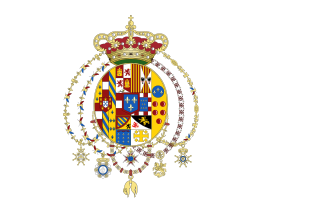
A Statement from His Majesty the King of Lombardy and Venice

[x] Niccoló Tomasseo, Representative for the Republic of San MarcoThe Concord of Florence
1. The signatory nation agree to form the Italian Confederation, a defensive alliance and political entity to unify the Italian people, guaranteeing their safety, security, and strength against foreign powers.
2. The nation comprising the Italian Confederation pledge to defend each other if attacked by a hostile power.
2. a. Nations within the Italian Confederation will not be compelled to join an offensive war of another power within the Confederation.
2. b. In the event that nations of the Italian Confederation end up in a defensive war together, no member of the Confederation will make a separate peace agreement with the enemy.
3. The Council of the Italian People will be created to oversee the Confederation and decide its policies.
3. a. The Council will be comprised of 1 representative from each member nation of the Confederation.
3. a. I. For a motion to be accepted in the Council, it must have support from a majority of the representatives.
3. a. II. The representatives of the Kingdom of Sardinia-Piedmonte, the Kingdom of Two Sicilies, and the Papal States each possess the power to veto any motion.
3. b. The Council has no authority to decide the domestic affairs of a member nation, merely holding power over interactions between the member nations.
4. Members nations agree to make efforts to integrate their economies and infrastructure in the long term, to better the well being of the Italian people.
[X] Giustino Fortunato, Minister of Foreign Affairs for the Kingdom of the Two Sicilies
[X] Claudio Gabriele de Launay, representative for the Kingdom of Sardinia-Piedmonte
[] Papal States
[] Grand Duchy of Tuscanny
[] Duchy of Modena
[] Duchy of Parma
[] Republic of San Marco

















CONVENTION between the United Kingdom of Great Britain and Ireland, the Republic of France, and the Argentine Confederation,
for the Settlement of existing Differences and the re-establishment of Friendship. — Signed at Buenos Ayres, September 24, 1848.
___________________________________________________________________________________
[Ratifications exchanged at Buenos Ayres, November 3, 1848.]
___________________________________________________________________________________
Convention for re-establishing the perfect Relations of Friendship between Her Britannic Majesty, the Republic of France, and the Argentine Confederation.
I. The Government of Her Britannic Majesty, as well as the Government of the Republic of France, animated by the desire of putting an end to the differences which have interrupted the political and commercial relations between the countries shall immediately evacuate those islands of the River Plate which they had previously occupied.
II. By all Contracting Parties shall be delivered to their respective owners, all the merchant vessels, with their cargoes, taken by them during the blockade.
III. The forces of both Her Britannic Majesty’s Government and the Government of the Republic of France shall be removed from the Oriental State, with the present government, under Manuel Oribe being recognized as the legitimate administration in the Oriental State.
IV. Her Britannic Majesty's Government and the Government of the Republic of France recognize the navigation of the River Parana to be an inland navigation of the Argentine Confederation, and subject solely to its laws and regulations, in the same manner as that of the River Uruguay in common with the Oriental State.
V. Her Britannic Majesty's Government and the Government of the Republic of France having declared, "that it is freely acknowledged and admitted that the Argentine Republic is in the unquestioned enjoyment and exercise of every right, whether of peace or war, possessed by any independent nation; and that if the course of events in the Oriental Republic has made it necessary for the Allied Powers to interrupt for a time the exercise of the belligerent rights of the Argentine Confederation, it is fully admitted that the principles on which they have acted, would, under similar circumstances, have been applicable either to Great Britain or France," it is hereby agreed that the Argentine Government, with regard to this declaration, reserves its right to discuss it opportunely with the Governments of the United Kingdom of Great Britain and Ireland and the Republic of France, in that part which relates to the application of the principle.
VI. Under this Convention perfect friendship between Her Britannic Majesty's Government, the Government of the Republic of France, and the Government of the Confederation, is restored to its former state of good understanding and cordiality.
VII. The Confederation shall be obligated to hold separate meetings with both Her Britannic Majesty’s Government and the Government of the Republic of France in order to consider the ratification of future treaties relating to the relaxation of restrictions to trade between the parties involved.
VIII. This Convention shall be ratified by the Argentine Government within 15 days after the ratification of both Her Britannic Majesty's Government and the Government of the Republic of France are presented, and the ratifications shall be exchanged.
IX. In witness whereof the Plenipotentiaries sign this Convention, and affix the seals of their arms thereto.
Done at Buenos Ayres on the 24th of September, in the year of our Lord, 1848.
(L.S.) Felipe Arana
() British Representative
() French Representative
CONVENTION between the United Kingdom of Great Britain and Ireland, the Republic of France, and the Argentine Confederation,
for the Settlement of existing Differences and the re-establishment of Friendship. — Signed at Buenos Ayres, September 24, 1848.
___________________________________________________________________________________
[Ratifications exchanged at Buenos Ayres, November 3, 1848.]
___________________________________________________________________________________
Convention for re-establishing the perfect Relations of Friendship between Her Britannic Majesty, the Republic of France, and the Argentine Confederation.
I. The Government of Her Britannic Majesty, as well as the Government of the Republic of France, animated by the desire of putting an end to the differences which have interrupted the political and commercial relations between the countries shall immediately evacuate those islands of the River Plate which they had previously occupied.
II. By all Contracting Parties shall be delivered to their respective owners, all the merchant vessels, with their cargoes, taken by them during the blockade.
III. The forces of both Her Britannic Majesty’s Government and the Government of the Republic of France shall be removed from the Oriental State, with the present government, under Manuel Oribe being recognized as the legitimate administration in the Oriental State.
IV. Her Britannic Majesty's Government and the Government of the Republic of France recognize the navigation of the River Parana to be an inland navigation of the Argentine Confederation, and subject solely to its laws and regulations, in the same manner as that of the River Uruguay in common with the Oriental State.
V. Her Britannic Majesty's Government and the Government of the Republic of France having declared, "that it is freely acknowledged and admitted that the Argentine Republic is in the unquestioned enjoyment and exercise of every right, whether of peace or war, possessed by any independent nation; and that if the course of events in the Oriental Republic has made it necessary for the Allied Powers to interrupt for a time the exercise of the belligerent rights of the Argentine Confederation, it is fully admitted that the principles on which they have acted, would, under similar circumstances, have been applicable either to Great Britain or France," it is hereby agreed that the Argentine Government, with regard to this declaration, reserves its right to discuss it opportunely with the Governments of the United Kingdom of Great Britain and Ireland and the Republic of France, in that part which relates to the application of the principle.
VI. Under this Convention perfect friendship between Her Britannic Majesty's Government, the Government of the Republic of France, and the Government of the Confederation, is restored to its former state of good understanding and cordiality.
VII. The Confederation shall be obligated to hold separate meetings with both Her Britannic Majesty’s Government and the Government of the Republic of France in order to consider the ratification of future treaties relating to the relaxation of restrictions to trade between the parties involved.
VIII. This Convention shall be ratified by the Argentine Government within 15 days after the ratification of both Her Britannic Majesty's Government and the Government of the Republic of France are presented, and the ratifications shall be exchanged.
IX. In witness whereof the Plenipotentiaries sign this Convention, and affix the seals of their arms thereto.
Done at Buenos Ayres on the 24th of September, in the year of our Lord, 1848.
(L.S.) Felipe Arana
() British Representative
() French Representative

